Easy Reading worksheets activities for Ages 4-9
9 filtered results
-
From - To
Discover a world of fun and engaging Easy Reading worksheets designed specifically for children aged 4 to 9! Our collection promotes early literacy skills through interactive activities that keep young learners motivated and excited about reading. These worksheets cover essential topics such as vocabulary, comprehension, sight words, and phonics, all tailored to enhance understanding in a playful manner. Parents and teachers will appreciate the variety of exercises that cater to different learning styles, ensuring every child can thrive. Download these wonderful resources today and watch your little ones become enthusiastic readers while enjoying their educational journey!
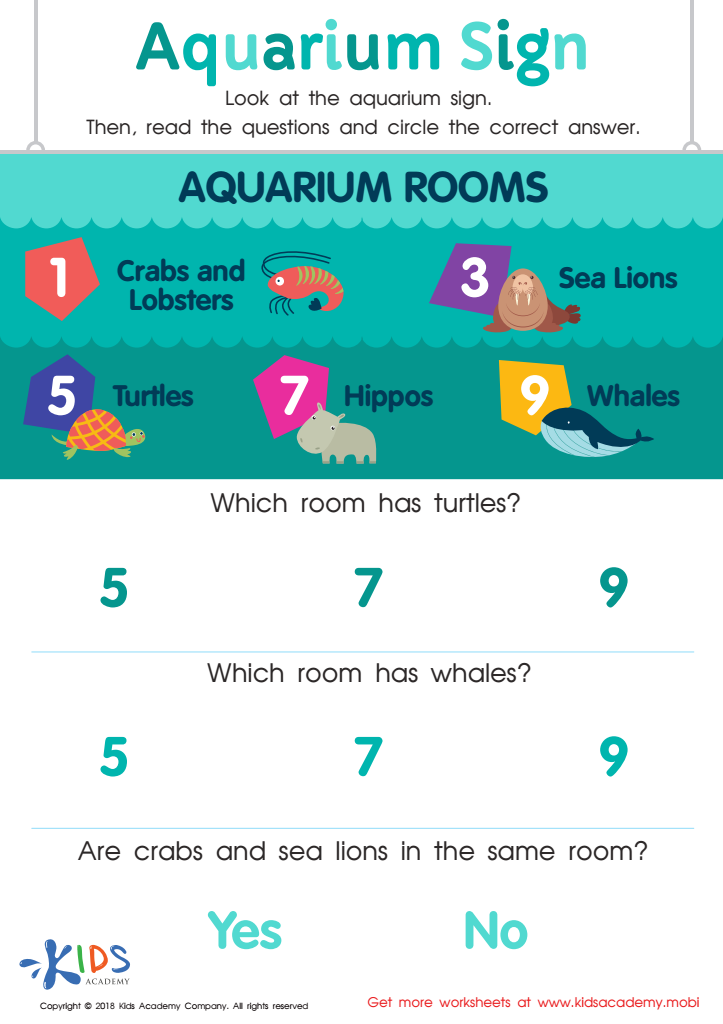

Assessment: Aquarium Sign Worksheet
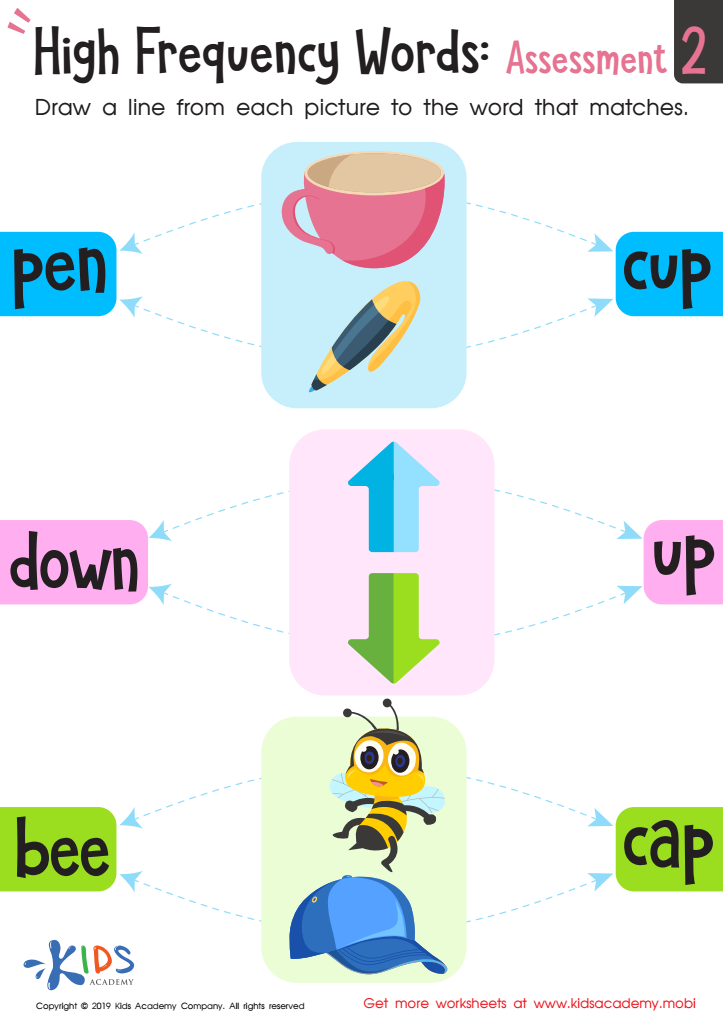

High Frequency Words: Assessment 2 Worksheet
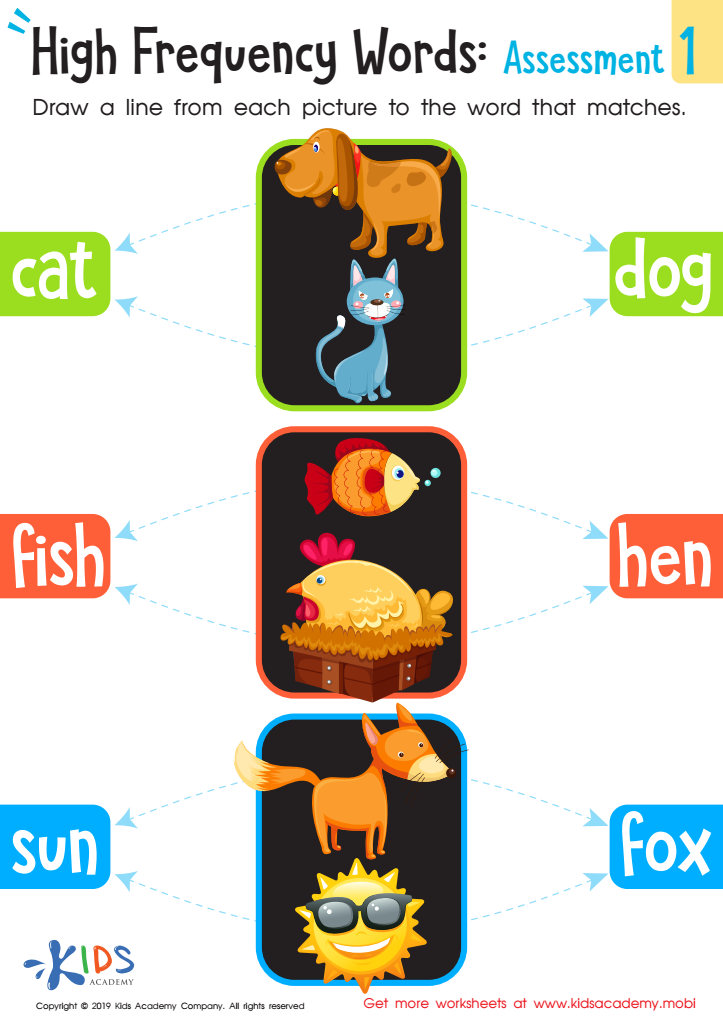

High Frequency Words: Assessment 1 Worksheet
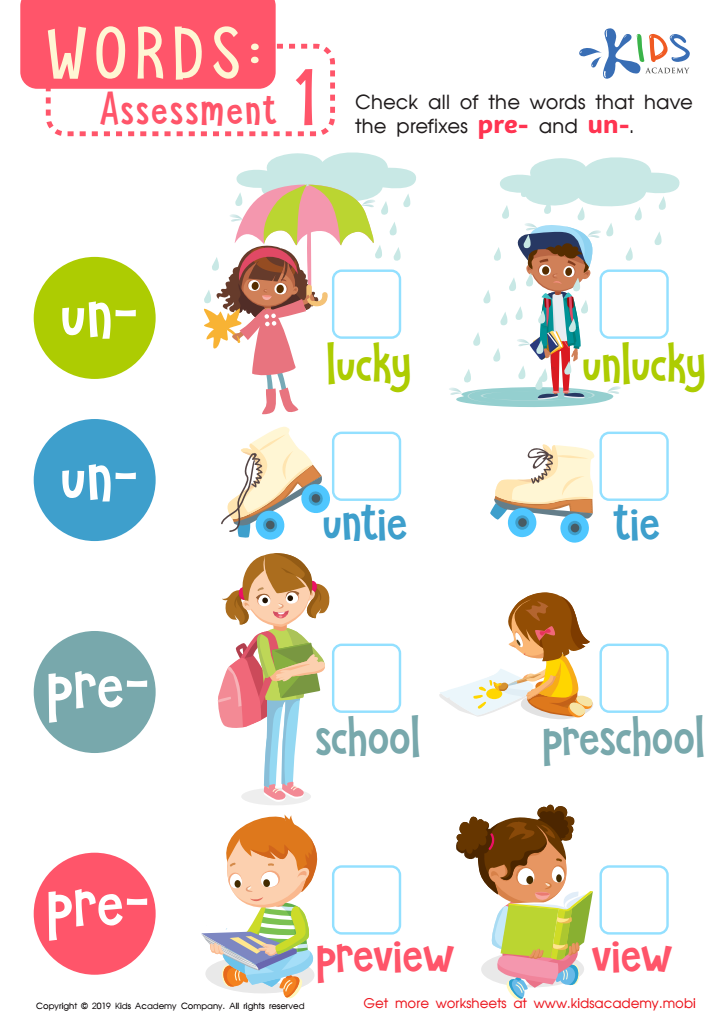

Words: Assessment 1 Worksheet
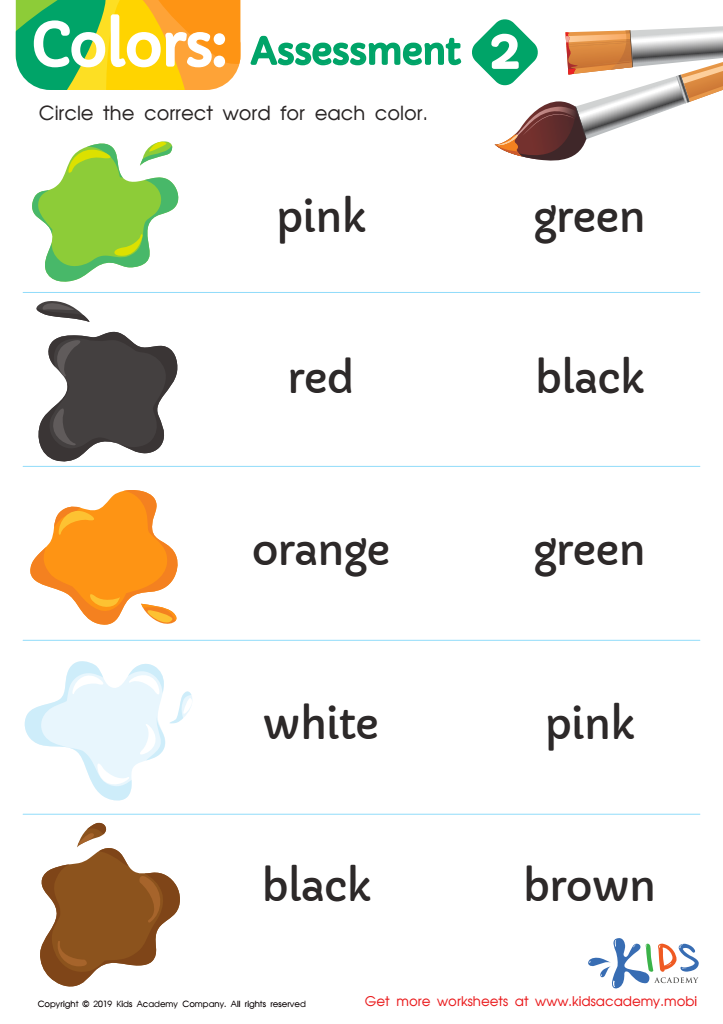

Colors: Assessment 2 Worksheet
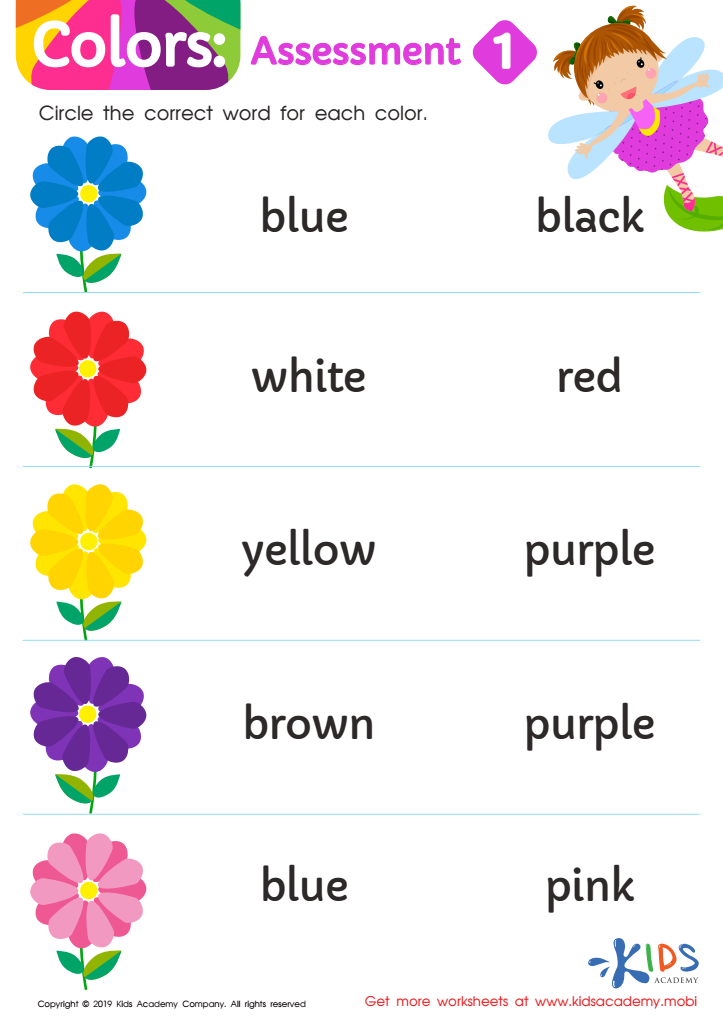

Colors: Assessment 1 Worksheet
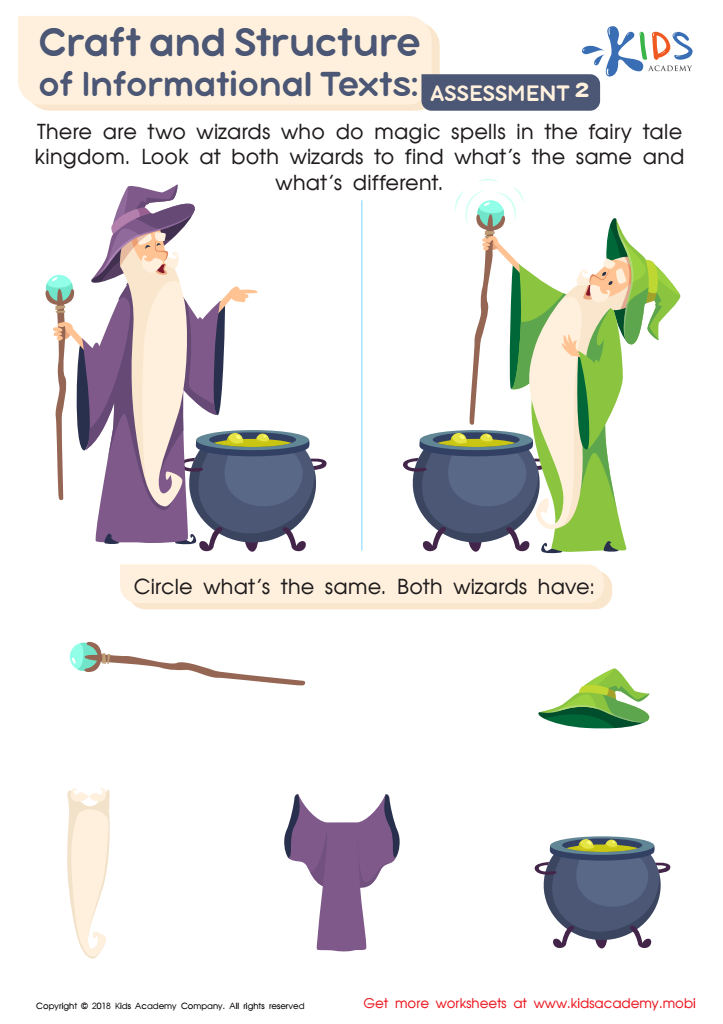

Craft and Structure of Informational Texts: Assessment 2 Worksheet
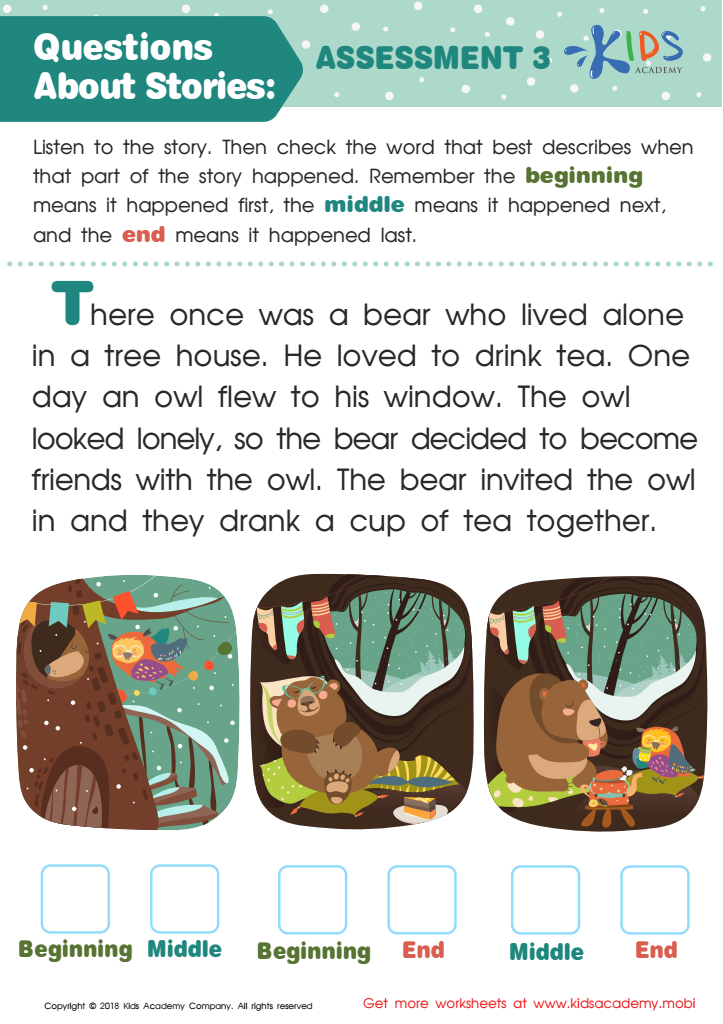

Questions About Stories: Assessment 3 Worksheet
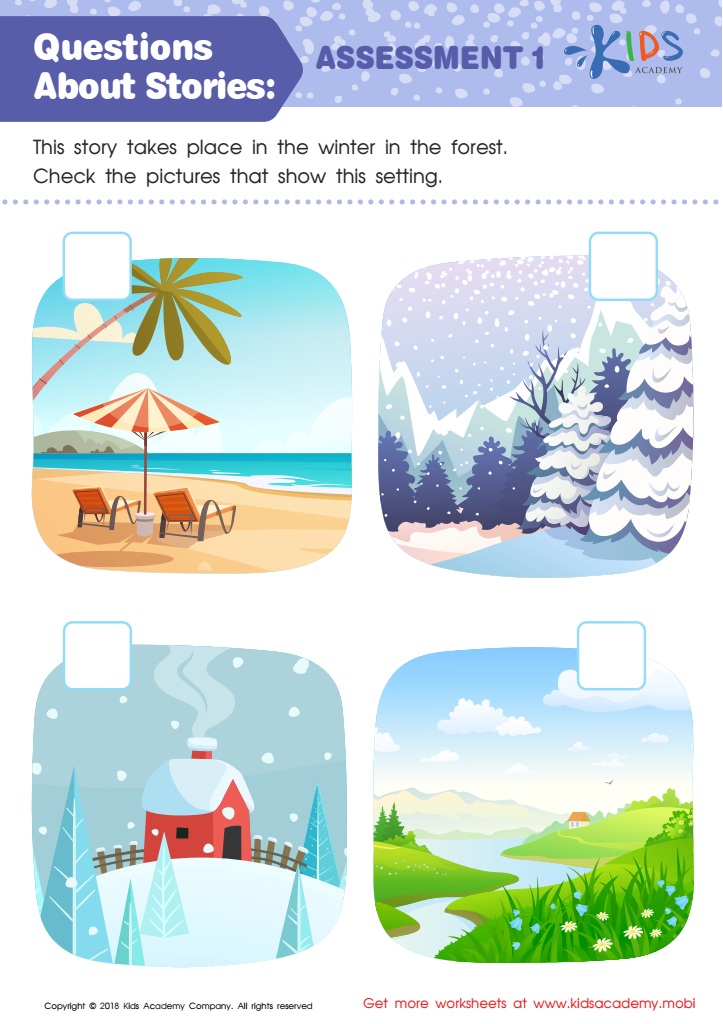

Questions About Stories: Assessment 1 Worksheet
Parents and teachers should care about easy reading activities for children aged 4-9 because these activities are foundational for developing essential literacy skills. During this critical stage, children are first introduced to reading, which fosters not just academic learning but also cognitive and social-emotional growth. Engaging in easy reading activities helps young learners build vocabulary, grasp basic sentence structure, and understand story elements, all of which contribute to their comprehension skills.
Moreover, incorporating fun and interactive reading activities captures children's attention and fuels their motivation to learn. In this age group, children benefit from playful, age-appropriate materials, which can include rhymes, picture books, and phonics games. These activities also promote a love for storytelling, igniting imagination and creativity while providing opportunities for shared bonding experiences between parents or teachers and children.
Furthermore, early reading proficiency is linked to future academic success, drastically impacting a child's educational trajectory. When children engage in easy reading activities that are structured yet enjoyable, they build confidence and independence in their reading skills. With strong early literacy, parents and educators help equip kids for lifelong learning and communication—skills vital not just for academic achievement, but for personal and professional development in the future.

 Assign to My Students
Assign to My Students
















